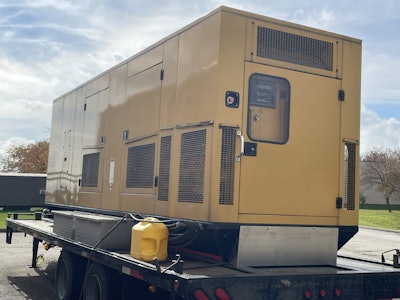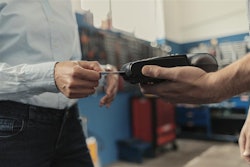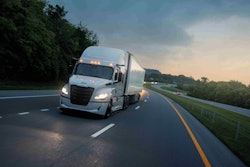
Determining federal excise tax (FET) exemptions for new equipment is a notoriously tricky job for dealers. U.S. tax code offers many exemptions for trucks and trailers based on their manufacturing design, modification or application, but those exemptions aren’t earned without valid, documented evidence.
How a customer intends to use a product often has little to do with its taxability, and during a National Trailer Dealers Association (NTDA) webinar Tuesday, Tim Reynolds, CPA with Davidson, Holland and Whitesell, shared how trailer dealers can better understand how the Internal Revenue Service (IRS) evaluates potential exemptions for farm equipment, mobile machinery and other off-highway equipment to avoid the nightmare scenario where FET is not collected during a sale but the IRS expects to receive it later.
Farm equipment exemptions
Reynolds started Tuesday’s webinar with IRS § 4053 — one of the few areas where the Federal tax code isn’t hopelessly opaque. Reynolds says IRS § 4053 refers to equipment “primarily designed” for agricultural use in the preparation, hauling, spreading, loading and unloading of feed, seed and fertilizer.
Reynolds says agricultural exemptions are found throughout tax code and “farmers often feel they are exempt on everything,” but does warn dealers that just because a farmer is buying a trailer doesn’t ensure their purchase is exempt. He gives the example of a farmer purchasing a unit designed to spread feed who chooses to use it in another way on a roadway, thus making it taxable, or a dealer marketing a tax-exempt product for ‘multi-use’ applications.
Reynolds says the latter is a definite point of emphasis for IRS investigators.
“If you’re marketing [an exempt unit] as multi-use, then you’re in trouble,” he says.
[RELATED: How avoid, or survive, an IRS audit due to FET mistakes]
Mobile machinery exemptions
Reynolds says similar risks exist for mobile machinery trailers. Reynolds says the IRS defines mobile machinery as a vehicle which consists of a chassis that: has permanently mounted machinery or equipment; performs a construction, manufacturing, processing, farming, mining, drilling, timbering, or similar operation; and operation of the machinery or equipment is unrelated to transportation on or off the public highways.
In this area, Reynolds says where dealers get in trouble is how the equipment is used after its assembled. A trailer manufactured and upfitted to hold a power unit (like the one shown above) is exempt from FET. But if the customer also uses the unit to regularly haul building materials to jobsites, or occasionally removes the power unit and uses the trailer for goods transfer, then FET applies. Conversely, he adds storing a small toolbox or safety equipment used specifically for the mobile machine on the trailer is generally accepted and will not invoke FET.
When questioned, Reynolds says dealers must be prepared to defend themselves. This means offering documentation proving a trailer was upfitted and sold for an exempt use and any taxable usage occurred out of the dealer’s purview.
 A trailer designed and primarily used in off-highway applications but capable of moving at highway speeds is likely subject to FET under the Substantial Impairment Test.
A trailer designed and primarily used in off-highway applications but capable of moving at highway speeds is likely subject to FET under the Substantial Impairment Test.
Off-highway use exemptions
Reynolds says proving an off-highway exemptions is even more challenging. To earn an off-highway exemption, a dealer must prove both the Special Design Test, and the Substantial Impairment Test, and both must occur in that order. And Reynolds says neither test is a cakewalk.
He says the Special Design Test states the vehicle or trailer must be specially designed for the primary function of transporting loads other than a public highway. Reynolds mentions intent here, stating dealers must collect FET on a highway-designed trailer even if a customer solely intends to use the unit on private grounds.
“It’s not good enough to look at intent,” he says. “The fact that it can go on the highway is what you want to look to.”
[RELATED: Untangling the FET web - How to limit your risk]
As for the Substantial Impairment Test, Reynolds says dealers must be able to provide substantial limitation to operate on highways based on size of the vehicle; licensing, safety and other highway requirements; and the ability to transport a load at a sustained speed of at least 25 mph. On this, Reynolds puts emphasis on the third point.
An oversized, custom-built trailer built specifically for the movement of an off-highway unit is still taxable if its zipping down the highway at 65 mph. He says dealers selling off-highway equipment as exempt must be able to prove the equipment passes both tests in succession, and states the IRS will expect proof for both to allow an exemption to proceed.
“Just because it won’t be used on a public highway doesn’t give you a get out of jail [free] card,” he says.










